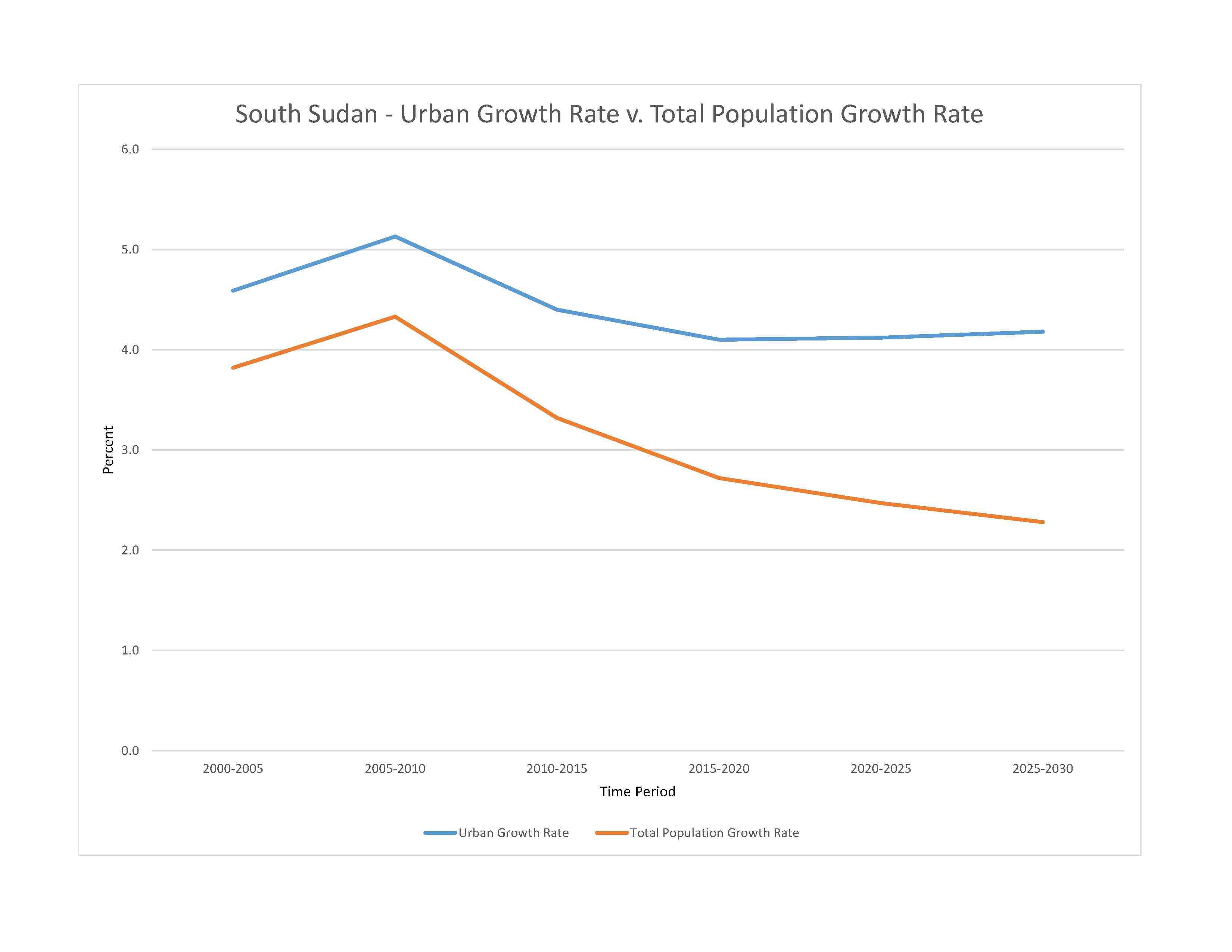
water pollution; inadequate supplies of potable water; wildlife conservation and loss of biodiversity; deforestation; soil erosion; desertification; periodic drought
party to: Biodiversity, Climate Change, Climate Change-Paris Agreement, Desertification, Ozone Layer Protection, Wetlands
signed, but not ratified: none of the selected agreements
hot with seasonal rainfall influenced by the annual shift of the Inter-Tropical Convergence Zone; rainfall heaviest in upland areas of the south and diminishes to the north
agricultural land: 45% (2018)
arable land: 4.4% (2018)
permanent pasture: 40.7% (2018)
forest: 11.3% (2018)
other: 43.5% (2018)
urban population: 21.2% of total population (2023)
rate of urbanization: 4.12% annual rate of change (2020-25 est.)

widespread lack of access:due to economic downturn, the lingering effects of floods, and prolonged internal conflict - despite sustained humanitarian assistance, food insecurity still affects large segments of the population, owing to rampant inflation and insufficient food supplies due to stagnant agricultural production, the effects of consecutive years with widespread floods, and the escalation of organized violence at the subnational level since 2020; about 7.76 million people, almost two thirds of the total population, are expected to face severe acute food insecurity in the lean season between April and July 2023 (2023)
2.65% of GDP (2015 est.)
particulate matter emissions: 20.18 micrograms per cubic meter (2019 est.)
carbon dioxide emissions: 1.73 megatons (2016 est.)
methane emissions: 7.61 megatons (2020 est.)
municipal solid waste generated annually: 2,680,681 tons (2013 est.)
Nile (shared with Rwanda [s], Tanzania, Uganda, Sudan, and Egypt [m]) - 6,650 km
note – [s] after country name indicates river source; [m] after country name indicates river mouth
Atlantic Ocean drainage: Congo (3,730,881 sq km), (Mediterranean Sea) Nile (3,254,853 sq km)
municipal: 190 million cubic meters (2020 est.)
industrial: 230 million cubic meters (2020 est.)
agricultural: 240 million cubic meters (2020 est.)
49.5 billion cubic meters (2020 est.)
NOTE: The information regarding South Sudan on this page is re-published from the 2024 World Fact Book of the United States Central Intelligence Agency and other sources. No claims are made regarding the accuracy of South Sudan 2024 information contained here. All suggestions for corrections of any errors about South Sudan 2024 should be addressed to the CIA or the source cited on each page.
This page was last modified 04 May 24, Copyright © 2024 ITA all rights reserved.